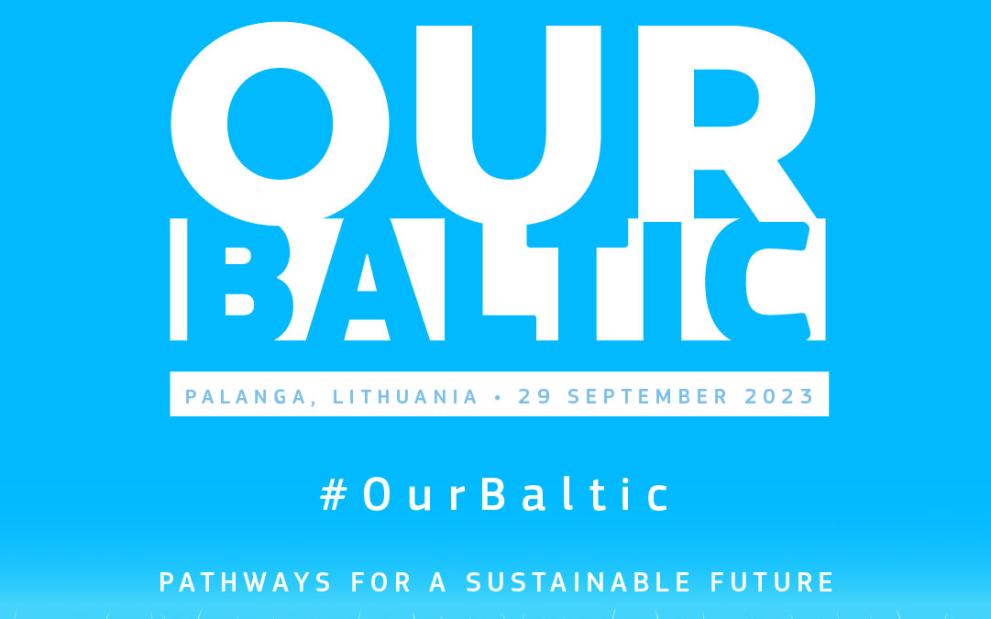
The Baltic Sea, nestled between lush green forests and breathtaking sandy beaches, is facing an increasingly challenging environmental situation, mainly due to pollution. It remains the most polluted sea in Europe.
Concerned about this situation, the European Commission is organising the 2nd edition of the Our Baltic Conference in Palanga (Lithuania) on 29 September 2023. This high-level event will bring together ministers from the 8 EU countries surrounding the Baltic Sea (Denmark, Germany, Estonia, Latvia, Lithuania, Poland, Finland and Sweden).
Commissioner for Environment, Oceans and Fisheries Virginijus Sinkevičius and ministers will look at what has been achieved since the first Our Baltic Conference in 2020, and what still needs to be done.
There will be a special focus on unexploded munitions from World Wars. Some 300,000 tonnes of unexploded munitions still lie at the bottom of the Baltic Sea, causing pollution and preventing the development of economic activities at sea.
Virginijus Sinkevičius, Commissioner for Environment, Oceans and Fisheries, said:
“The Baltic Sea is not in good shape. It’s time to save this sea for the people who live around it, for our fishers and for future generations. In September, I will be inviting ministers responsible for fisheries, agriculture and environment from all EU countries around the Baltic to step up their action. We will tackle in particular an invisible threat: the unexploded munitions lying at the bottom of the sea. I am looking forward to taking more targeted actions together so that we can solve the complex problems this majestic sea faces.”
Main topics of discussion and action
This conference will be an opportunity to discuss, collaborate and agree on a joint action to address the current challenges.
The main topics will be
- environment & fisheries - progress made on the actions announced in the Ministerial Declaration of the 2020 Our Baltic conference
- economic activities linked to the sea (“blue economy”) - finding ways to allow activities at sea to flourish (e.g. offshore renewable energy, aquaculture, bioeconomy, etc.)
- unexploded munitions
Background
More than 85 million people live around the Baltic Basin.
The Baltic Sea is an ecosystem whose shallowness, limited connection with the ocean, slow water circulation and low water temperature make it especially fragile.
It is the most polluted sea in Europe. It is affected by biodiversity loss, climate change, eutrophication, overfishing, and elevated levels of contaminants such as pharmaceuticals and litter, in particular plastic waste. Currently,
- 97% of the Baltic Sea is affected by eutrophication lowering oxygen levels
- Less oxygen means fewer fish and less life in the sea, making the ecosystem more fragile and more vulnerable to environmental changes. Socioeconomic benefits are also lower, with fisheries badly affected
- Some 300 000 tonnes of unexploded munitions from World Wars lie at the bottom of the sea, threatening the development of economic activities and leaking contaminants in the sea
In 2020, at the Our Baltic Conference, the European Commission and all the Baltic Member States made ambitious commitments to
- protect the marine environment of the Baltic Sea
- fight against eutrophication
- reduce pollution
- secure sustainable fisheries and aquaculture
- support a sustainable blue economy, and
- monitor progress
More information
Conference website - 2023 edition of Our Baltic conference
Details
- Publication date
- 24 July 2023
- Author
- Directorate-General for Maritime Affairs and Fisheries
